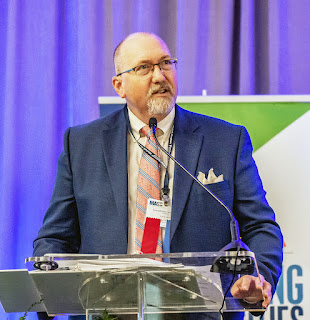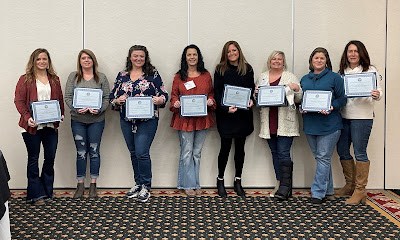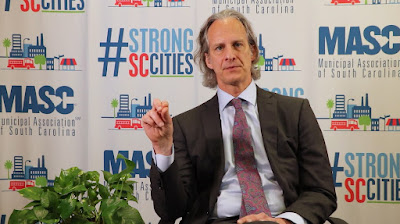City Connect is the blog of the Municipal Association of SC connecting officials in the state’s 271 cities and towns with the resources and tools they need to provide efficient and cost-effective services to residents and businesses.
Thursday, July 28, 2022
Civility, Association Successes Highlighted at 2022 Annual Meeting
Thursday, July 7, 2022
National Award Nomination Shows Downtown Florence’s Vision and Commitment to Transformation
Thursday, June 30, 2022
Prepare for the 2022 Annual Meeting
Thursday, June 16, 2022
Learn More About the City Connect Market
- ambulance, EMS and special service vehicles;
- emergency medical and rescue equipment;
- marketing, public relations and event planning services;
- parks and recreation equipment;
- street maintenance equipment; and
- trenchless pipeline rehabilitation.
Thursday, June 2, 2022
Take Advantage of the Municipal Association’s Listserves
- The SC Municipal Human Resources Association – The single most active listserve has recently discussed job task tests for firefighters, take-home vehicle policies as a hiring incentive for police officers, and offering Hepatitis vaccines for public safety workers.
- The SC Municipal Finance Officers, Clerks and Treasurers Association – Recent threads on the MFOCTA listserve have included which cities and towns use a convenience fee for credit card purchases at city hall, the public meetings for which cities are providing livestreaming — city council meetings, committee meetings, board meetings — and guidance for how cities should report their American Rescue Plan expenditures.
- Planning and zoning — In recent months, conversations on this listserve have included regulating donation centers within a city, setting timelines for a property with a nonconforming use under the city’s zoning to conform with the zoning code, and handling applications for vinyl wraps to be placed on the exterior of buildings in the historic district.
Thursday, May 19, 2022
Cities to Identify Unclaimed Funds in June
The South Carolina Uniform Unclaimed Property Act requires that all entities that hold unclaimed funds, including local governments, must work to return those funds to their owners each year. When those holding the funds cannot locate the owners of the funds, they must then send the funds to the State Treasurer’s Office, which continues the effort to find the owners. In June, municipalities should work to identify what unclaimed funds they are holding.
Municipalities may find that they are holding several types of funds, including these:
- Accounts payable – Unpaid credit balances, which can include uncashed payroll checks.
- Courts and jails – Overpaid bail bonds or leftover inmate account funds.
- Parks and recreation – Deposits for facility rentals.
- Water and sewer – Deposits left when customers end service.
The State Treasurer’s Office offers a timeline for identifying funds and handling them correctly.
- No later than June 30 – Cities must review their records for unclaimed property.
- July to October – For all unclaimed funds, cities must attempt to locate the property owner by sending the owner a notification form letter to the last address on file. The law does not require them to send a letter when there is no valid address available.
- No later than November 1 – Cities must send an electronic unclaimed property report, even if there are no outstanding funds to report, and any remittances to the State Treasurer. The State Treasurer’s website gives information on how to create reports in acceptable formats and remit funds.
The Treasurer provides the website southcarolina.findyourunclaimedproperty.com to allow users to search for funds owed to any person or business. The initiative has now returned $414 million in funds.

















